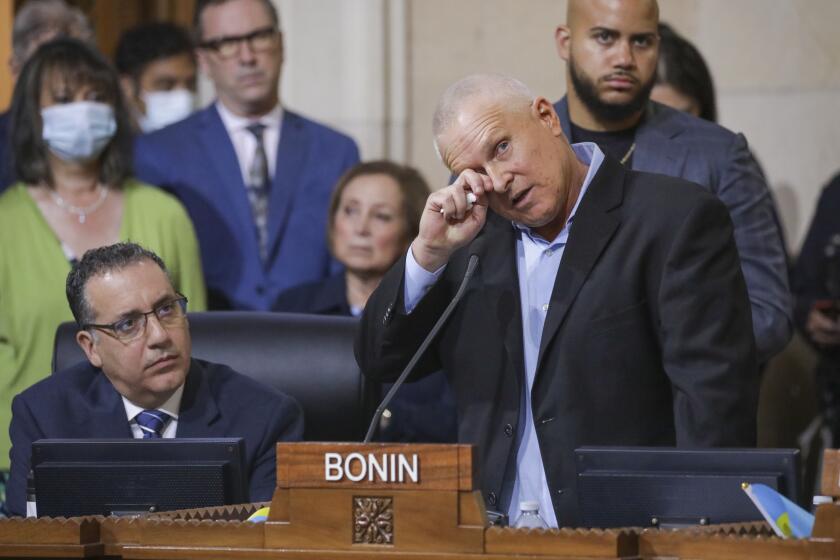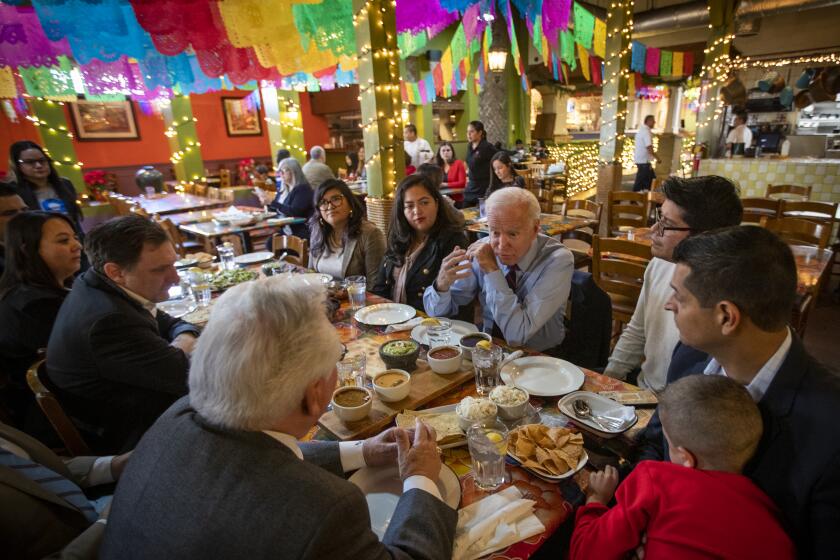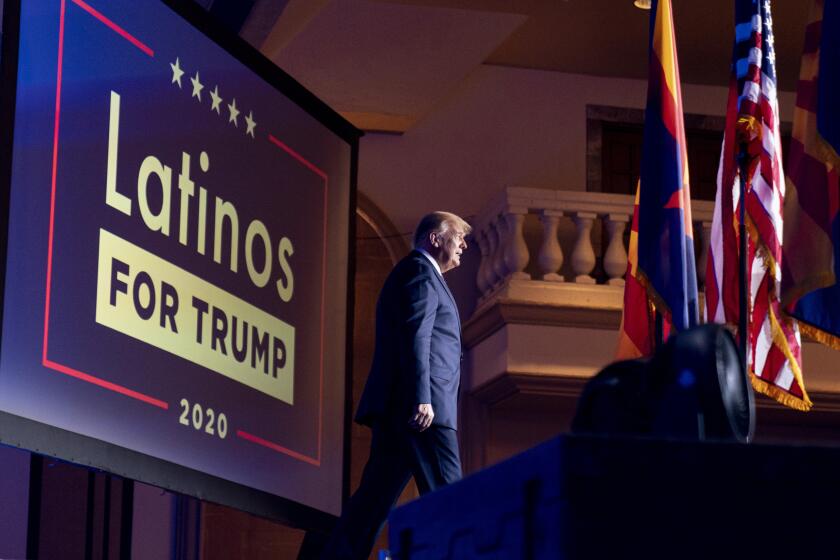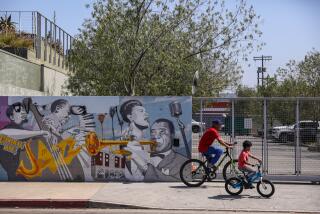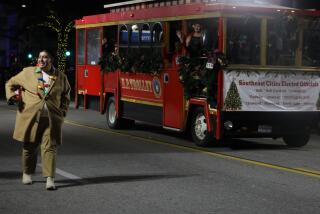Column: Almost no one was spared in that racist conversation among top L.A. Latino officials
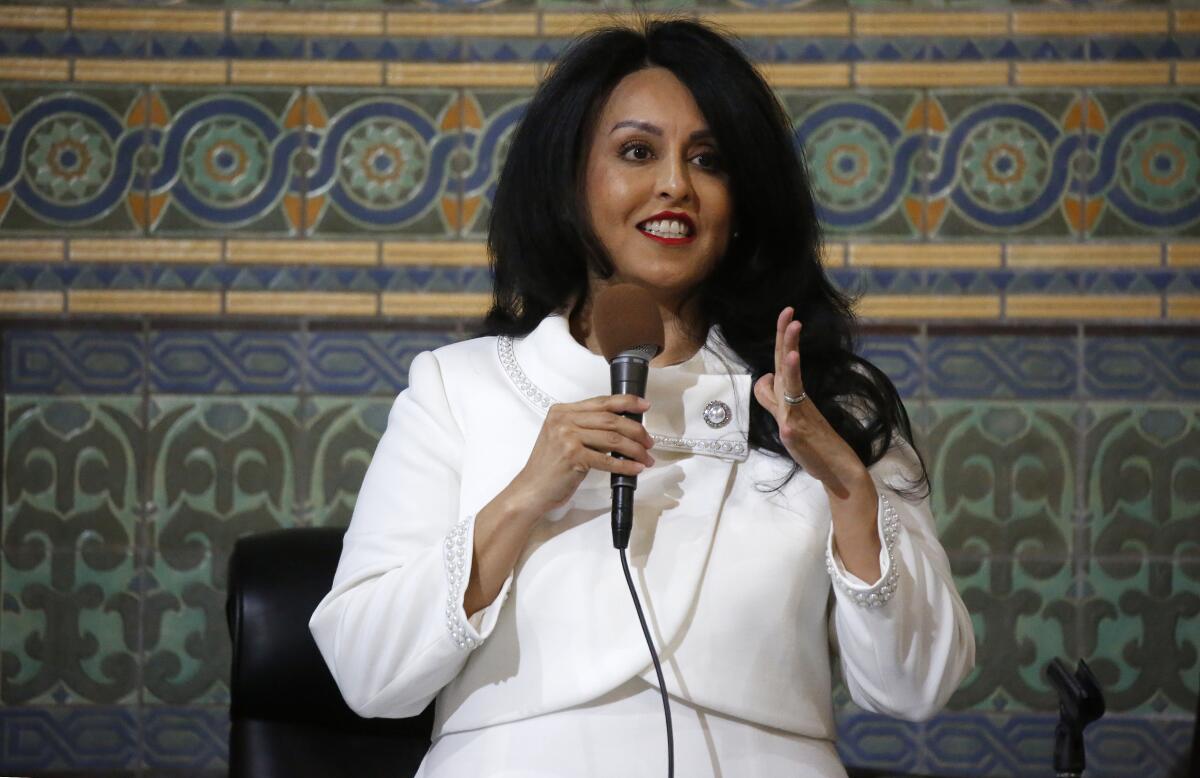
Since the entire city seems to be dissecting the secret Los Angeles City Hall recordings for expressions of hatred against nearly every demographic group, allow me to chime in.
About Armenians.
Among the many casual slurs made by several of our cityâs high-profile Latino Democratic officials in a secretly recorded conversation about redistricting were a few mild ones directed at a former City Hall staffer and my fellow Armenian American, Areen Ibranossian.
A veteran of Los Angeles politics and local campaigns, Ibranossian worked as Councilman Paul Krekorianâs chief of staff before leaving to become a political consultant in 2018.
In the recordings, he is described as âthe guy with the one eyebrow,â by Nury Martinez, who stepped down from her post as City Council president on Monday after The Times broke the story Sunday. Someone then speculates about his last name. âIt ends in i-a-n, betcha,â a councilman says.
Being dismissive of someoneâs facial features is crass and immature. And guessing that an Armenian Americanâs name ends in i-a-n is the intellectual equivalent of calling water wet. No duh.
Certainly, this coarseness is not in the same league as Martinez describing City Councilman Mike Bonin, who is gay, as âa little bitch,â describing his son, who is Black, as a monkey, or calling brown-skinned Oaxacans who have settled in Koreatown ugly.
But it underscores the depressing clannishness of these Latino officials, and their apparent belief that everybody who is not like them is fair game to be trampled in the quest for political muscle.
L.A. City Councilmember Nury Martinez is taking a leave of absence amid outrage over her racist comments heard on a leaked audio recording.
The recordings were posted on a now-defunct account on the social media website Reddit. Over the weekend, my colleagues David Zahniser, Julia Wick, Benjamin Oreskes, Dakota Smith and Gustavo Arellano worked to authenticate the recordings and translate where necessary, well aware of the storyâs earth-shattering implications for race relations in Los Angeles.
Besides Martinez and De LeĂłn, the strategy session also included Los Angeles City Councilman Gil Cedillo and Ron Herrera, president of the Los Angeles County Federation of Labor. On Monday, Herrera resigned his post. The conversation focused on slicing and dicing the cityâs council district maps to increase Latino political power and dilute Black political power.
Thatâs bad enough. But the casual spouting of hatred directed at Black people by some of the cityâs most powerful Latino officials is exactly the kind of spark that can ignite unrest and, yes, violence.
The story has mushroomed into a full-blown civic crisis, with calls from many quarters â including from longtime allies of the four â for them to resign. On Tuesday, Martinez announced she would take a leave of absence from the council.
Ibranossian, understandably, was reluctant to descend into the muck when I reached out to him Monday.
As someone with an Armenian surname and heritage, I am acutely aware of anti-Armenian sentiment, and wondered if he was disturbed by Martinezâs characterization.
It is stunning to hear a L.A. City Council leader make bigoted comments about people with strong Indigenous roots. But in some ways, itâs not shocking.
âI am a 40-year-old man,â he told me. âI have a wife and two kids. This is not something I worry about.â
After some reflection, he said via email Tuesday that he was bothered. âThis type of depiction of Armenians is not uncommon and is too often tolerated,â he said. âItâs something we as a community have become accustomed to, unfortunately.â
Armenians, victims of what is often called the 20th centuryâs first genocide, at the hands of the Ottoman Empire, are familiar with ethnic animus. (Hitler cited the genocide approvingly in 1939, when he said: âWho, after all, speaks today of the annihilation of the Armenians?â)
Ibranossian told me his family lived in Torrance for several years after emigrating from Iran to the United States. In that overwhelmingly white suburb, he was called names like âtowel headâ and âcamel jockey,â racist slurs that are doubly stupid because they have no basis in reality. Armenians do not wear turbans, and there are no deserts in Armenia.
Behind the racist language is a hard fact that is shaking up politics nationwide: Latinos are underrepresented.
After his family moved to Glendale, a city with one of the highest concentrations of Armenians outside Yerevan, the Armenian capital, there was nothing novel about being Armenian. He graduated from high school at the turn of the millennium just ahead of a turbulent time in Glendale, when the city was beset by ethnic conflict between Armenian and Mexican teens.
âThese were two ethnic groups that have kind of come up together in a community that was predominantly white,â Ibranossian said. It was less about racial animus, he said, and âmore about finding their space.â
When my father was growing up in the Central Valley in the 1930s and 1940s, anti-Armenian prejudice was a daily fact of life. Armenians were the new immigrants â the feared minority â soon to be replaced by swelling numbers of African Americans and Mexican immigrants.
In those days, the slur du jour for Armenians was âFresno Indian.â
Earlier this month, during a memorial celebration for my dad, who died two years ago, my older sister told me a story I had never heard before: As a teenager in Fresno, our father had arrived at a girlâs house to pick her up for a date and heard a neighbor say to her parents, âYouâre not letting your daughter date an Armenian, are you?â That unexpected wound left a lifelong scar.
But Armenians are nothing if not clannish as well. And racism among ethnic groups flows both ways.
In the summers, for instance, my grandmother urged her sons to stay out of Fresnoâs harsh midday sun.
Why? For a shameful reason. She didnât want people to mistake them for Mexicans.
More to Read
A cure for the common opinion
Get thought-provoking perspectives with our weekly newsletter.
You may occasionally receive promotional content from the Los Angeles Times.

